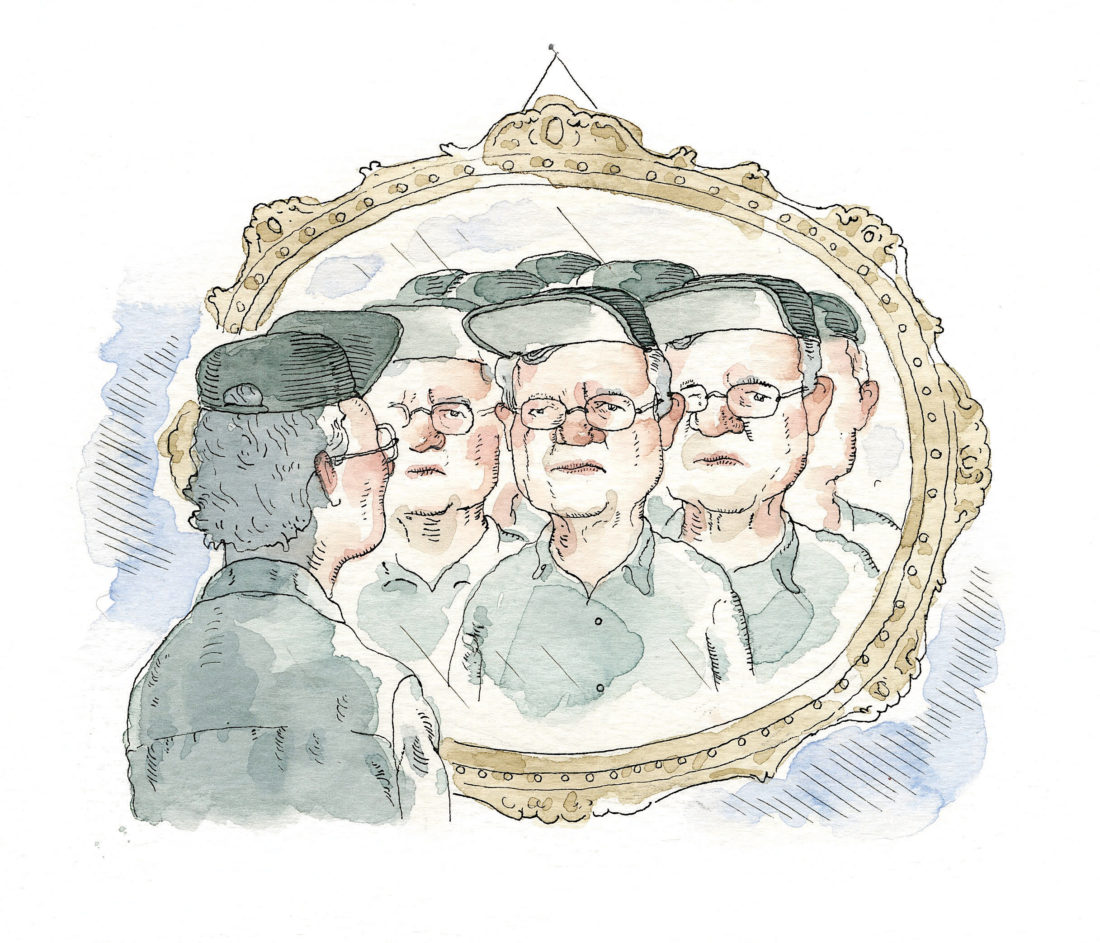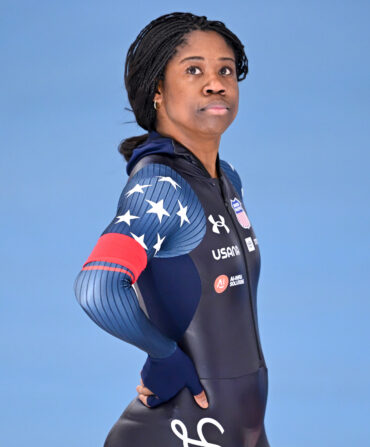Like the fiber in okra and the pluribus in unum, some issues of singular and plural may be insoluble. But they don’t have to be divisive. The Rampart Food Store in New Orleans—known locally as “the orange store,” because it is painted bright orange outside—is operated by Vietnamese immigrants. It deals in po’boys, fried rice, liquor, canned goods, and breakfast. The bill of fare on the wall of the orange store includes “grits by itself.” That rings comical, but so would “grits by themselves.” The issue is transcended, on the wall, by “grits w/ cheese.”
The orange store’s specialty is the shrimp po’boy. Shrimp will do for singular or plural, but in the great seafood song “Hold Tight,” Fats Waller sang “shrimpers and rice, they’re very nice.” Michael P. Smith took a famous photograph of a
determined-looking man standing next to a truck on which is written “BIG SWIMPS 10 lb Special.” Plurality makes shrimp(s) pop.
Y’all is a different matter. On the website “Yahoo! Answers,” someone asks, “Is it wrong to say ‘y’all selves’?” Here is how some yahoo responds:
“Singular: y all s self. Plural: all y all s selves. It needs the possessive, and ‘y’all’ should be singular, ‘all y’all’ being the plural…The Southern family I married into…happen to also be language nerds (Advanced English degrees and all) and insist that y all is strictly singular without the extra leading ‘all.’”
How anyone with ears can call y’all standard singular, I do not know. Once in a blue moon I hear it used so, but almost invariably the speaker is a tradesman trying to charm a Northern tourist. (An exception: In the movie Moonlight, someone says, “Yaw sit down, man.”) If y’all is singular, why do people commonly and clearly say “some of y’all,” “both of y’all,” “each and every one of y’all”? Y’all is a specific second-person plural, which formal English lacks. All y’all is a more expansive y’all: “Listen up, y’all—all y’all.”
As president of the Authors Guild some years ago, I was involved in negotiations with high-level Google executives. They weren’t Southern, so I was pleasantly surprised to hear them use y’all, correctly, and not for my sake (which would of course have made me bristle). When I mentioned this, they seemed oddly evasive. Maybe they thought I thought I had caught them being politically correct. According to an item in the Atlantic, in corporate circles y’all is encouraged as a nonsexist substitute for “you guys.” Hey, works for me.
And so does most of what turns up when I search for y’all on the web these days. On urbandictionary.com, the most popular definition of y’all reads, “Only an absolute idiot would use it as a singular pronoun,” and plurality is assumed in this definition of an extended term:
Y’all best break y’all selves
Warning to children or other misbehaving persons to behave in public. Contrary to previously attributed gangsta use, it’s what your Grandma would say if you and your cousins were acting up outside your own house or backyard, even if you were only in the front yard. Short for “Y’all best break y’all selves of actin’ out, before I break you of embarrassin’ me in public.” Complementary phrase might be “Ah’mo (I’m going to) take you right out this world and tell God the gators got you.”
So why does the singular-y’all myth persist? I’m listening to an audiobook of The Moviegoer. To my horror, I hear Aunt Emily saying on the phone to Binx, “Her [Kate’s] behavior is not unexplainable and therefore not inexcusable. Y’all’s is.” That, clearly, is a singular y’all. From the pen of Walker Percy!
Not. Here is that passage in the book. “Her behavior is not unexplainable and therefore not inexcusable. Yours is.” There is no y’all, singular or plural, in all of The Moviegoer.
I guess the audio narrator thought he’d Suthun the old lady up a little. He is actor Christopher Hurt. He grew up in Illinois. His behavior in this regard is inexcusable. But perhaps explainable: Non-Southerners want Southerners to use y’all as a silly singular because they want to think of us as picturesque, puttin’-on folk (or folks) who don’t actually mean half of what we say—when, in fact, we do.
In the case of y’all, we mean both halves.








